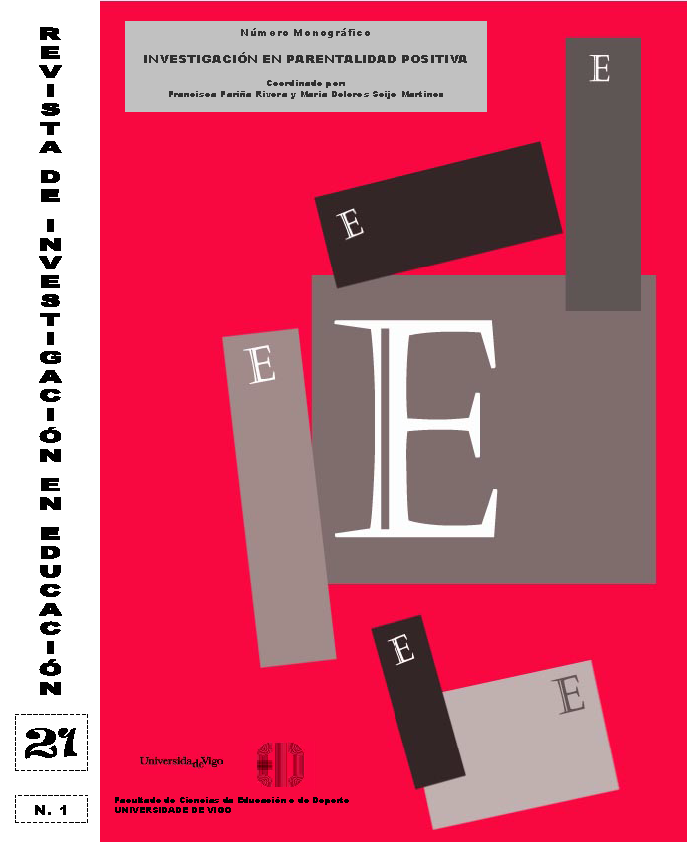Perceiving the needs of families of children with autism spectrum disorder: Keys to the promotion of positive parenting from the educational field
DOI:
https://doi.org/10.35869/reined.v21i1.4532Keywords:
Autistic Spectrum Disorder, Family, Positive Parenting, Needs, Educational InclusionAbstract
The aim of this study was to analyze the perception that families with children with autism spectrum disorder (ASD) have of the importance and satisfaction of their needs. An additional goal was to examine the relation of the satisfaction of these needs with the feeling of belonging to the educational center and with the perception of discrimination at school. The sample for this study consisted of 55 parents of children with ASD between 4 and 12 years of age from the Autonomous Community of the Canary Islands. The results showed that the five most frequent unmet important needs were: honest answers to their questions, financial support, being told if they are making good decisions about their child, their child's school establishing a specialized education plan for their child, information about special programs and services available for their child and family. The cluster analysis revelead two typologies of families according to the satisfaction of needs. The sense of belonging to the school and the perception of discrimination in the school characterized the two groups, with the cluster with the higher level of need satisfaction showing better results. The findings highlighted the importance of families' perception of their needs and may help to identify goals and targets for intervention to promote the well-being of children with ASD and their families.
Downloads
Downloads
Published
Issue
Section
License
Copyright (c) 2023 Revista de Investigación en Educación

This work is licensed under a Creative Commons Attribution-NonCommercial-NoDerivatives 4.0 International License.
The acceptance of the papers for publication, means that the printing and reproduction rights are owned by the journal. The conditions of use and reuse of content are those established in the Creative Commons CC BY-NC-ND 4.0 license.



